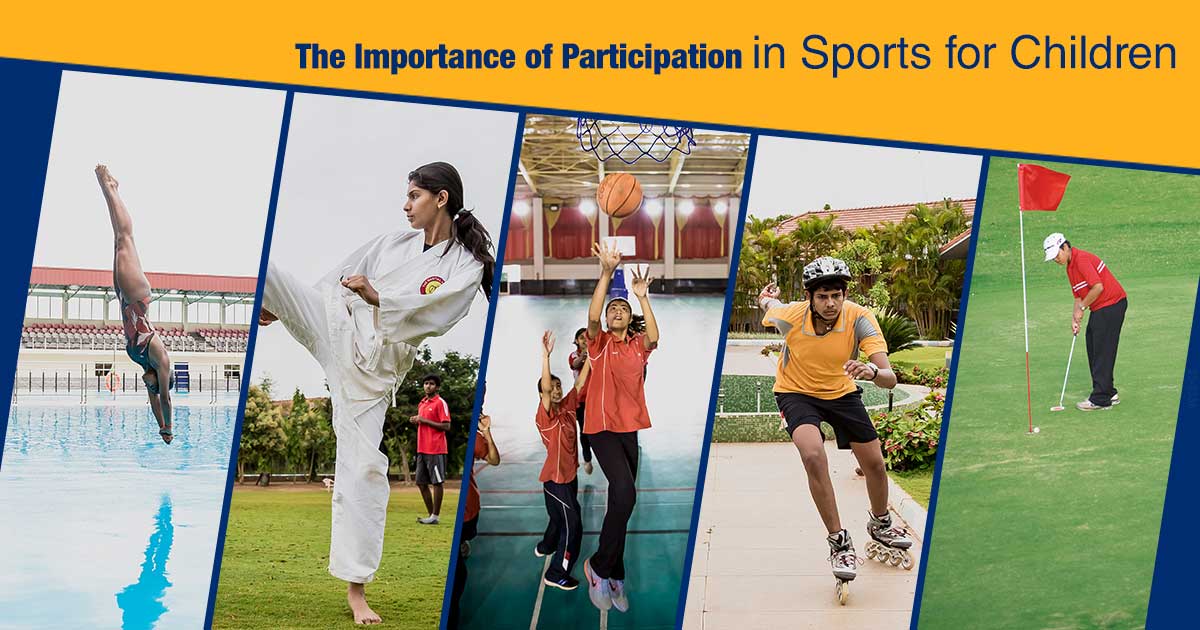

All work and no play makes Jack a dull boy.
We all must have heard this proverb at least once in our lifetime. Its power lies in its reminder to strike a balance between work and play, avoiding the pitfall of monotony and diminished effectiveness. This wisdom extends to our children, urging us to ensure they don't solely focus on academics but also immerse themselves in various sports. Sports act as an important channel for cognitive, social, emotional, and physical growth, shaping well-rounded individuals. From honing strategic thinking on the field to fostering companionship and resilience, sports enrich their lives in myriad ways. Let's embrace this wisdom, empowering the next generation to excel academically and thrive in the realm of play. Their bright and vibrant future awaits, driven by the harmonious interplay of work and play.
We have listed down the importance with respect to each growth factor, which will help you understand the importance of sports.
Promotes Physical Health and Fitness
By engaging in sports activities, children perform regular physical exercise, which is essential for their overall health and fitness. Participating in sports helps children improve their cardiovascular health, develop strong muscles and bones, enhance motor skills, and maintain healthy body weight. It also reduces the risk of obesity, diabetes, and other lifestyle-related diseases.
Enhances Motor Skills
We all know that performing sports activities requires the inclusion of various movements, coordination, and balance. Participating in sports contributes to the overall development of motor skills in children. By engaging in different kinds of sports activities, children enhance their agility, speed, endurance, and overall body control. These motor skills are transferable to other activities in their daily lives, such as playing, dancing, and even academic tasks.
Facilitates Social Interaction and Teamwork
When children engage in different sports, it provides them with opportunities to interact with their peers, coaches, and officials. This social interaction builds the foundation of teamwork, cooperation, communication, and sportsmanship. They learn how to work together towards a common goal, respect rules, and handle both success and failure graciously. Moreover, children learn to trust their teammates to achieve victory, thereby building a sense of camaraderie and mutual respect.
Builds Self-Confidence and Self-esteem
By engaging in sports, children build their self-confidence and develop a positive self-image. This happens when they learn to acquire new skills, improve their performance, and achieve personal goals while playing. Furthermore, by being part of a team and receiving recognition for their efforts and accomplishments, it also boosts their confidence, helps them overcome challenges, and develops a sense of self-worth.
Master's Discipline and Time Management
Sports require discipline, commitment, and regular practice. By participating in sports, children learn the importance of setting goals and managing their time effectively. As sports demand a significant time commitment, children learn to manage their schedules efficiently by allocating time for practices, competitions, academics, and personal responsibilities. Accountability in team sports teaches children the importance of showing up on time and being reliable, reinforcing discipline and punctuality.
Fosters Mental and Emotional Well-being
When children actively engage themselves in sports, they improve their mental and emotional health through various mechanisms. Physical activity is known to release endorphins, often referred to as "feel-good" hormones. These hormones can elevate moods and reduce feelings of stress and anxiety. Regular participation in sports allows children to experience these positive effects, promoting a sense of happiness and overall well-being. Sports also provide a healthy outlet for emotions, allowing children to manage their complex feelings, cope with challenges, and develop resilience in hard times.
Initiates Lifelong Habits and a Healthy Lifestyle
Active involvement in sports from a young age promotes healthy lifelong habits and lifestyles in children. They learn the importance of maintaining good physical health and continue practising it when they become adults. When children are exposed to good physical activity from childhood itself, they tend to stay active even into adulthood, reaping the long-term benefits of a healthy lifestyle. Moreover, they learn the art of staying disciplined, maintaining a healthy balance between responsibilities, and setting achievable goals. All of these attributes contribute to instilling lifelong healthy habits and lifestyles in children.
Way Forward
To summarise, engaging in sports offers a plethora of benefits for young minds. They promote physical health and fitness, enhance motor skills, facilitate social interaction and teamwork, and foster discipline while boosting self-confidence. Moreover, sports schools contribute significantly to the mental and emotional well-being of children. The children adopt lifelong habits and a healthy lifestyle that set the foundation for a fulfilling and well-rounded life. Encouraging children to embrace sports alongside their academic pursuits ensures their holistic development, leading them towards a brighter and healthier future.
Recent Blogs
IGCSE Full Form
What is the International Baccalaureate?
IBDP Full Form
CIE Board Full Form
CBSE Full Form
Site Designed and Maintained By : Office of Communications, JAIN Group All rights reserved.